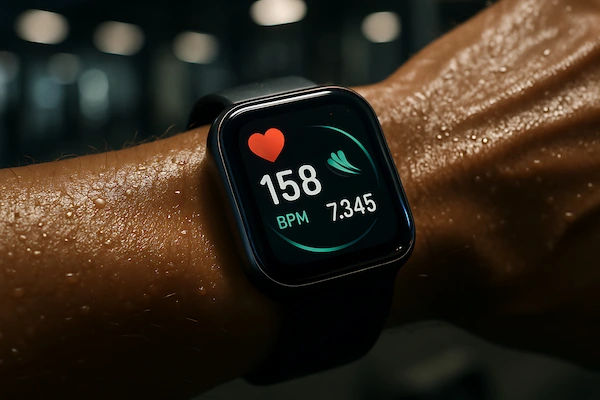- female
- 32 Years
- 22/01/2025
I'm 32 years old and recently had an ECG done for my ICL eye surgery. It's showing a heart rate between 120 to 127. I havent had any health issues or heart pain for the past five years, and I've been getting full body checks regularly since I was 27, which consistently show my heart rate in the 120 range. Is this something I should be really concerned about, and is it safe to go ahead with the ICL eye surgery? My report is attached. What should I do?
Answered by 1 Apollo Doctors
You have a consistently high heart rate around 120 range for the past 5 years without any health issues or abnormalities. This may be normal for you, especially if you are physically active or have a naturally high heart rate. However, it is important to further evaluate the cause of your elevated heart rate to ensure it is not due to any underlying medical condition. Considering you are planning to proceed with ICL eye surgery, it would be advisable to consult with a cardiologist to assess your heart health and determine if any further investigations or treatment are necessary before undergoing the surgery. The cardiologist may recommend medications such as Metoprolol to help lower your heart rate if needed. It is important to address any potential cardiac issues before proceeding with surgery to ensure your safety and well-being
Dr. Shubham Suggests...
Consult a Cardiologist
Answered 04/07/2025
0
0

More Cardiology Health Queries
View allI'm really worried because even though I had an ECG, Echo, and a chest X-ray done about three months ago and they all showed normal results, including my SPO2 and pulse rate, I'm still experiencing pain in my left chest and left hand regularly for the past 6 to 7 months. The ECG did mention sinus tachycardia with sinus arrhythmia and a low T wave in V6. I also had Bell's palsy about a year ago but have completely recovered since then. Could all of this be connected somehow? What should I do next?
Given that your recent ECG, Echocardiogram, and chest X-ray were normal but you are still experiencing persistent left chest and hand pain, it is crucial to further investigate the cause of your symptoms. Sinus tachycardia and sinus arrhythmia noted on your ECG can sometimes be benign, but persistent pain warrants further evaluation. You should follow up with a cardiologist for a thorough review, and they may recommend additional tests like a stress test or Holter monitoring. Additionally, it might be beneficial to consider non-cardiac causes of your pain such as musculoskeletal issues or gastrointestinal problems like acid reflux. Managing stress and anxiety can also help alleviate symptoms. Please ensure you consult your healthcare provider to explore these options and manage your symptoms effectively.
Answered by 1 Apollo Doctors
I'm a bit concerned about my heart rate when I'm sleeping. At night, it sometimes goes as high as 115 beats per minute, but during the day, it's more like 85 BPM. I don't have any other health conditions right now. Should I be worried about this change in heart rate between day and night? Is it normal?
Heart beat rise during sleep in night up to 115 beats per minute is known as nocturnal tachycardia. This can be due to various reasons such as stress, anxiety, caffeine intake, or even certain medications. Since you do not have any other existing conditions, I recommend monitoring your caffeine intake and practicing relaxation techniques before bedtime. If the issue persists, you can consider taking a beta-blocker medication like Metoprolol, starting with a low dose of 25mg once daily in the morning. However, it is important to consult with a healthcare professional before starting any new medication.
Answered by 1 Apollo Doctors
I'm dealing with this chest pain for the last couple of months, and I've already checked in with a gastric specialist and taken some gas meds. Even had an ECG done and that seemed fine. But I'm still feeling this pain when I move around or lift stuff. Could this be a muscle issue in my chest? Should I be worried, and is there something specific I should be taking to help with it?
Based on your description, it is possible that your chest pain is indeed related to chest muscle pain. To help relieve the pain, you can try taking over-the-counter pain relievers such as acetaminophen or ibuprofen. Additionally, you can use a muscle relaxant such as methocarbamol to help relax the chest muscles and alleviate the pain. It is also important to rest the affected area and avoid activities that worsen the pain. If the pain persists or worsens, it is advisable to follow up with your healthcare provider for further evaluation and management.
Answered by 1 Apollo Doctors
Disclaimer: Answers on Apollo 247 are not intended to replace your doctor advice. Always seek help of a professional doctor in case of an medical emergency or ailment.





